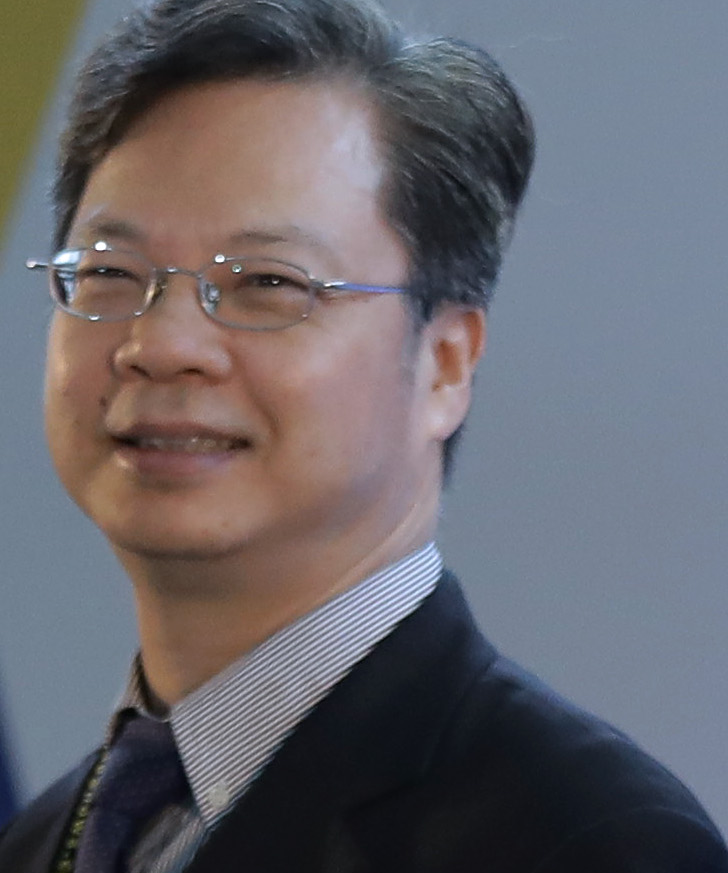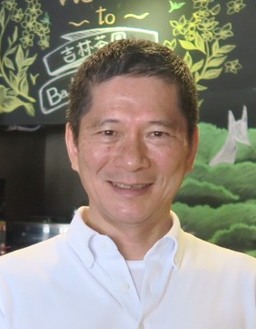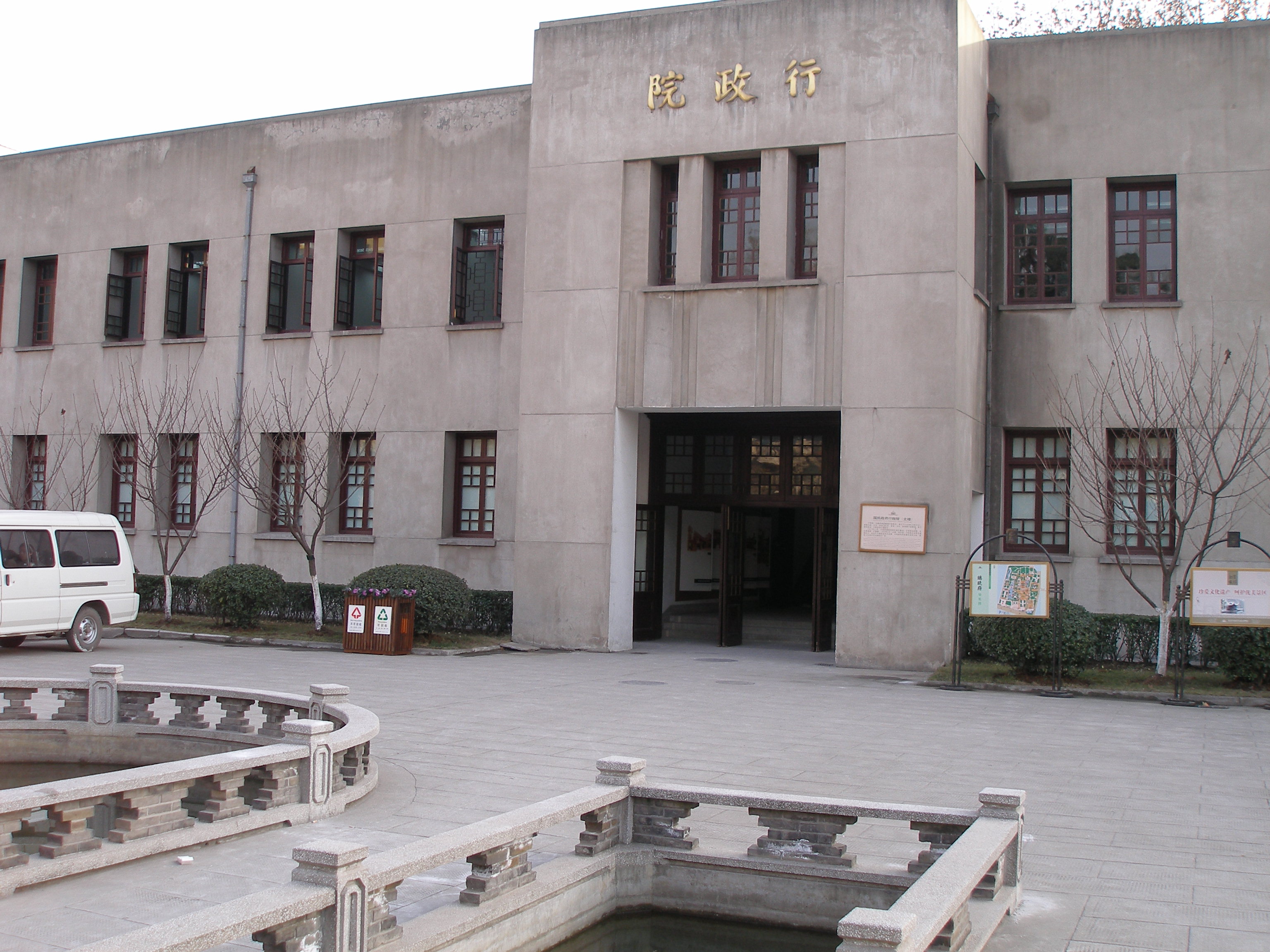Executive Yuan on:
[Wikipedia]
[Google]
[Amazon]
The Executive Yuan () is the executive branch of the
 , -
, National Development Council
, 國家發展委員會
, style="background:white",
,
, -
, National Development Council
, 國家發展委員會
, style="background:white",
,  , -
,
, -
,  , -
, Financial Supervisory Commission
, 金融監督管理委員會
, style="background:white",
,
, -
, Financial Supervisory Commission
, 金融監督管理委員會
, style="background:white",
,  , -
,
, -
,  , -
, Hakka Affairs Council
, 客家委員會
, style="background:",
, Lee Yung-te
,
, -
, Hakka Affairs Council
, 客家委員會
, style="background:",
, Lee Yung-te
,  , -
, Science and Technology Council
, 國家科學及技術委員會
, style="background:",
,
, -
, Science and Technology Council
, 國家科學及技術委員會
, style="background:",
,  , -
, style="background:pink" ,
Public Construction Commission
, 公共工程委員會
, style="background:white",
, Wu Tze-cheng
,
, -
, style="background:pink" ,
Public Construction Commission
, 公共工程委員會
, style="background:white",
, Wu Tze-cheng
,  , -
, style="background:pink" ,
, -
, style="background:pink" ,


 Duencies may be dissolved or merged with other agencies. Based on Executive Yuan website, the following bodies are no longer agencies under the Executive Yuan:
* Consumer Protection Commission, restructured as the Consumer Protection Committee on 1 January 2012
* Aviation Safety Council, became an independent agency on 20 May 2012, later renamed Taiwan Transportation Safety Board
* National Disaster Prevention and Protection Commission: a task-force-grouped committee authorized by the law of Disaster Prevention and Protection.
Duencies may be dissolved or merged with other agencies. Based on Executive Yuan website, the following bodies are no longer agencies under the Executive Yuan:
* Consumer Protection Commission, restructured as the Consumer Protection Committee on 1 January 2012
* Aviation Safety Council, became an independent agency on 20 May 2012, later renamed Taiwan Transportation Safety Board
* National Disaster Prevention and Protection Commission: a task-force-grouped committee authorized by the law of Disaster Prevention and Protection.
government of the Republic of China
The Government of the Republic of China, is the national government of the Republic of China whose ''de facto'' territory currently consists of Taiwan, Penghu, Kinmen, Matsu and other island groups in the " free area". Governed by the ...
(Taiwan
Taiwan, officially the Republic of China (ROC), is a country in East Asia, at the junction of the East and South China Seas in the northwestern Pacific Ocean, with the People's Republic of China (PRC) to the northwest, Japan to the no ...
). Its leader is the Premier, who is appointed by the President of the Republic of China, and requires confirmation by the Legislative Yuan.
Under the amended constitution, the head of the Executive Yuan is the Premier who is positioned as the head of government
The head of government is the highest or the second-highest official in the executive branch of a sovereign state, a federated state, or a self-governing colony, autonomous region, or other government who often presides over a cabinet, a ...
and has the power to appoint members to serve in the cabinet, while the ROC President is the head of state
A head of state (or chief of state) is the public persona who officially embodies a state Foakes, pp. 110–11 " he head of statebeing an embodiment of the State itself or representatitve of its international persona." in its unity and ...
under the semi-presidential system, who can appoint the Premier and nominate the members of the cabinet. The Premier may be removed by a vote of no-confidence by a majority of the Legislative Yuan, after which the President may either remove the Premier or dissolve the Legislative Yuan and initiate a new election for legislators.
Organization and structure
The Executive Yuan is headed by the Premier (or President of the Executive Yuan) and includes its Vice Premier, twelve cabinet ministers, various chairpersons of commissions, and five to nine ministers without portfolio. The Vice Premier, ministers and chairpersons are appointed by the President of the Republic of China on the recommendation of the Premier. Its formation, as one of five branches ("Yuans") of the government, stemmed from the Three Principles of the People, the constitutional theory ofSun Yat-sen
Sun Yat-sen (; also known by several other names; 12 November 1866 – 12 March 1925)Singtao daily. Saturday edition. 23 October 2010. section A18. Sun Yat-sen Xinhai revolution 100th anniversary edition . was a Chinese politician who serve ...
, but was adjusted constitutionally over the years to adapt to the situation in the ROC by changes in the laws and the Constitution of the Republic of China.
Ministries
Councils and commissions
Empowered by various laws or the Constitution, under the Executive Yuan Council several individual boards are formed to enforce different executive functions of the government. Unless regulated otherwise, the chairs are appointed by and answer to the Premier. The members of the boards are usually (a) governmental officials for the purpose of interdepartmental coordination and cooperation; or (b) creditable professionals for their reputation and independence. ", ,Chen Chi-chung
Chen Chi-chung () is a Taiwanese politician. He is the Minister of Council of Agriculture since 14 January 2019 after being the acting Minister since 4 December 2018.
Education
Chen obtained his master's degree in agricultural economics from ...
,  , -
, National Development Council
, 國家發展委員會
, style="background:white",
,
, -
, National Development Council
, 國家發展委員會
, style="background:white",
, Kung Ming-hsin
Kung Ming-hsin () is a Taiwanese politician.
Early life
Kung obtained his bachelor's degree in statistics from Fu Jen Catholic University in 1986, master's degree in economics from National Taiwan University in 1989 and doctoral degree in econo ...
,  , -
,
, -
, Mainland Affairs Council
The Mainland Affairs Council (MAC) is a cabinet-level administrative agency under the Executive Yuan of the Republic of China in Taiwan.
The MAC is responsible for the planning, development, and implementation of the cross-strait relations ...
, 大陸委員會
, style="background:",
, Chiu Tai-san
, Huang Tien-mu
Huang Tien-mu () or Thomas Huang is a Taiwanese politician. He was appointed chairman of the Financial Supervisory Commission in May 2020. He previously served as chairman of the agency in an acting capacity in 2016.
Early life and education
Hu ...
,  , -
,
, -
, Ocean Affairs Council
The Ocean Affairs Council () is the official governing body in Taiwan (Republic of China) under the Executive Yuan in charge of the planning, coordination and implementation of marine-related policies.
History
The Organization Act of the Ocean ...
, 海洋委員會
, style="background:white",
, Lee Chung-wei
Lee Chung-wei (; born 14 December 1952) is a Taiwanese politician and naval Vice Admiral. He is the acting Chairperson of Ocean Affairs Council since 14 January 2019.
Education
Lee received his bachelor's degree from the Republic of China Nav ...
,
, -
, Overseas Community Affairs Council
, 僑務委員會
, style="background:white",
, Wu Hsin-hsing
,
, -
, Veterans Affairs Council
The Veterans Affairs Council (VAC; ) is a branch of the Executive Yuan of the Republic of China ( Taiwan) with "responsibilities to assist in education assistance, employment assistance, medical care, home care and other general services" for reti ...
, 國軍退除役官兵輔導委員會
, style="background:white",
, Feng Shih-kuan
Feng Shih-kuan (; born 25 November 1945) is a Taiwanese politician. He served in the Republic of China Air Force from 1967 to 2006, retiring with the rank of General before assuming the post of Minister of National Defense in 2016. Feng steppe ...
,
, -
, Council of Indigenous Peoples
The Council of Indigenous Peoples (CIP; ), formerly known as the Council of Aboriginal Affairs, is a ministry-level body under the Executive Yuan in Taiwan (Republic of China). It was established to serve the needs of the country's indigenous ...
, 原住民族委員會
, style="background:",
, Icyang Parod
,  , -
, Hakka Affairs Council
, 客家委員會
, style="background:",
, Lee Yung-te
,
, -
, Hakka Affairs Council
, 客家委員會
, style="background:",
, Lee Yung-te
,  , -
, Science and Technology Council
, 國家科學及技術委員會
, style="background:",
,
, -
, Science and Technology Council
, 國家科學及技術委員會
, style="background:",
, Wu Tsung-tsong
Wu Tsung-tsong (; born 1955) is a Taiwanese politician. Currently serve as Minister without Portfolio and the Minister of Science and Technology Council of Taiwan.
Education and academic career
Wu obtained his bachelor's degree in civil engi ...
,  , -
, style="background:pink" ,
Public Construction Commission
, 公共工程委員會
, style="background:white",
, Wu Tze-cheng
,
, -
, style="background:pink" ,
Public Construction Commission
, 公共工程委員會
, style="background:white",
, Wu Tze-cheng
,  , -
, style="background:pink" ,
, -
, style="background:pink" ,
Atomic Energy Council
The Atomic Energy Council (AEC; ) is an independent government agency of the Executive Yuan of the Republic of China ( Taiwan) which is responsible for atomic safety, development and regulations. It also conducts research and development into ato ...
, 原子能委員會
, style="background:white",
, Hsieh Shou-shing
, 
Independent commissions
There are independent executive commissions under the Executive Yuan Council. Members of these commissions have to be confirmed by the Legislative Yuan.Other organs
Organizations no longer under Executive Yuan
Dissolved or cease to function
* Government Information Office on 20 May 2012 * Council for Economic Planning and Development on 21 January 2014 * Research, Development and Evaluation Commission on 21 January 2014 *Mongolian and Tibetan Affairs Commission
The Mongolian and Tibetan Affairs Commission (MTAC) was a ministry-level commission of the Executive Yuan in the Republic of China. It was disbanded on 15 September 2017.
History
The first model was created during the Qing dynasty in 1636 ...
on 15 September 2017
Ministers without portfolio
In the Executive Yuan Council, the currentministers without portfolio
A minister without portfolio is either a government minister with no specific responsibilities or a minister who does not head a particular ministry. The sinecure is particularly common in countries ruled by coalition governments and a cabinet ...
are:
* Chang Ching-sen
* Huang Chih-ta
* John Deng
* Kung Ming-hsin
Kung Ming-hsin () is a Taiwanese politician.
Early life
Kung obtained his bachelor's degree in statistics from Fu Jen Catholic University in 1986, master's degree in economics from National Taiwan University in 1989 and doctoral degree in econo ...
, also serving as Minister of National Development Council
* Kuo Yau-hwang (郭耀煌)
* Lin Wan-i
* Lo Ping-cheng (羅秉成), also serving as spokesperson of the Yuan
* Wu Tsung-tsong
Wu Tsung-tsong (; born 1955) is a Taiwanese politician. Currently serve as Minister without Portfolio and the Minister of Science and Technology Council of Taiwan.
Education and academic career
Wu obtained his bachelor's degree in civil engi ...
, also serving as Minister of National Science and Technology Council
* Wu Tze-cheng, also serving as Minister of Public Construction Commission
Executive Yuan Council
The Executive Yuan Council, commonly referred to as "The Cabinet" (), is the chief policymaking organ of the ROC government. It consists of the premier, who presides over its meetings, the vice premier, ministers without portfolio, the heads of the ministries, and the heads of the Mongolian and Tibetan Affairs Commission and the Overseas Chinese Affairs Commission. The secretary-general and the deputy secretary-general of the Executive Yuan also attend, as well as heads of other Executive Yuan organizations by invitation, but they have no vote. Article 58 of the Constitution empowers the Executive Yuan Council to evaluate statutory and budgetary bills concerningmartial law
Martial law is the imposition of direct military control of normal civil functions or suspension of civil law by a government, especially in response to an emergency where civil forces are overwhelmed, or in an occupied territory.
Use
Martia ...
, amnesty, declarations of war, conclusion of peace or treaties, and other important affairs before submission to the Legislative Yuan.
Relationship with the Legislative Yuan
The Executive Yuan Council must present the Legislators with an annual policy statement and an administrative report. The Legislative Committee may also summon members of the Executive Yuan Council for questioning. Whenever there is disagreement between the Legislative Council and Executive Yuan Council, the Legislative Committee may pass a resolution asking the Executive Yuan Council to alter the policy proposal in question. The Executive Yuan may, in turn, ask the Legislators to reconsider. Afterwards, if the Legislative Council upholds the original resolution, the premier must abide by the resolution or resign. The Executive Yuan Council may also present an alternative budgetary bill if the one passed by the Legislative Committee is deemed difficult to execute.Access
The Executive Yuan building is accessible within walking distance east of Taipei Main Station or west ofShandao Temple Station
Shandao Temple (formerly transliterated as Shantao Temple Station until 2003), secondary station name Huashan, is a station on the Bannan line of Taipei Metro in Zhongzheng District, Taipei, Taiwan. It is named after the Shandao Temple.
Station ...
of Taipei Metro.
See also
*Department of State Affairs
The Shangshu Sheng (), sometimes translated as the Department of State Affairs or the Imperial Secretariat, was one of the departments of the Three Departments and Six Ministries government structure. It was the primary executive institution of ...
in the Three Departments and Six Ministries
The Three Departments and Six Ministries () system was the primary administrative structure in imperial China from the Sui dynasty (581–618) to the Yuan dynasty (1271–1368). It was also used by Balhae (698–926) and Goryeo (918–1392) a ...
system
* Ming dynasty
The Ming dynasty (), officially the Great Ming, was an Dynasties in Chinese history, imperial dynasty of China, ruling from 1368 to 1644 following the collapse of the Mongol Empire, Mongol-led Yuan dynasty. The Ming dynasty was the last ort ...
: Central Secretariat → Grand Secretariat
The Grand Secretariat (; Manchu: ''dorgi yamun'') was nominally a coordinating agency but ''de facto'' the highest institution in the imperial government of the Chinese Ming dynasty. It first took shape after the Hongwu Emperor abolished the o ...
* Qing dynasty
The Qing dynasty ( ), officially the Great Qing,, was a Manchu-led imperial dynasty of China and the last orthodox dynasty in Chinese history. It emerged from the Later Jin dynasty founded by the Jianzhou Jurchens, a Tungusic-speak ...
: Grand Secretariat
The Grand Secretariat (; Manchu: ''dorgi yamun'') was nominally a coordinating agency but ''de facto'' the highest institution in the imperial government of the Chinese Ming dynasty. It first took shape after the Hongwu Emperor abolished the o ...
→ Grand Council → Cabinet
Cabinet or The Cabinet may refer to:
Furniture
* Cabinetry, a box-shaped piece of furniture with doors and/or drawers
* Display cabinet, a piece of furniture with one or more transparent glass sheets or transparent polycarbonate sheets
* Filin ...
* Republic of China: State Council (1912–28); Politics of the Republic of China; Government of the Republic of China
The Government of the Republic of China, is the national government of the Republic of China whose ''de facto'' territory currently consists of Taiwan, Penghu, Kinmen, Matsu and other island groups in the " free area". Governed by the ...
* People's Republic of China
China, officially the People's Republic of China (PRC), is a country in East Asia. It is the world's List of countries and dependencies by population, most populous country, with a Population of China, population exceeding 1.4 billion, slig ...
: Government Administration Council of the Central People's Government (1949–54) → State Council of the People's Republic of China
The State Council, constitutionally synonymous with the Central People's Government since 1954 (particularly in relation to local governments), is the chief administrative authority of the People's Republic of China. It is chaired by the pr ...
(1954–present); Ministries of the PRC
* Government-General of Taiwan (1895–1945)
References
External links
* {{Asia topic , Cabinet of , title = National cabinets of Asia Government agencies established in 1928 1928 establishments in China Taiwan, Executive Yuan Government of Taiwan